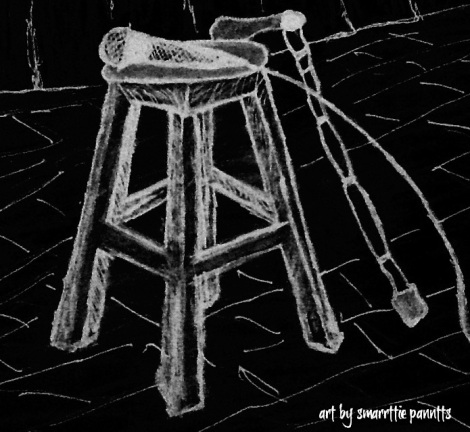
Jonathots Daily Blog
(4419)
Episode 16
For nearly five months, I had been squirreling some money away, trying to fund an idea I believed needed to be pursued.
It was time.
Whatever inspiration had once possessed the soul of our family—to travel across the country, working, living and making music together—had gradually dissipated down to a stream of loyalty and an irritating question.
If we weren’t doing this, what in the hell would we do?
My wife mustered the energy to be happy, but certainly had lost the desire to schedule, travel and perform.
My sons were thrilled to be brothers, enjoined with me, but knew deep in their hearts that the “call of the mild” must replace the “call of the wild.”
They needed lives of their own.
This would take money.
I knew it was foolish to announce to the family my campaign. It just might make them fearful that if they ate an extra apricot, they were destroying our future.
So I kept it private.
After five months, I had a small sum I was grateful for—but knew it was nowhere in the ballpark of fulfilling the need.
We were traveling across the panhandle of Florida, heading toward Jacksonville when I said a very simple prayer.
“Dear Lord, I’ve painted myself into a corner. Either help the paint to dry quickly or direct me clearly on how to leap out of my predicament.”
Also, it had become more difficult to acquire schedulings. It takes a lot of passion to convince somebody of what you want to do—and honestly, people were not quite as open to being convinced.
So in late August, in boiling hot Jacksonville, we succeeded in getting one booking for the week–on the Sunday night.
One opportunity to pay our way.
One mission field.
One audience.
I came to a decision before we rolled up to our engagement.
“Whatever we have at the end of tonight I will use to set us up somewhere and give my sons the chance to launch their own lives.”
Yet I was discouraged when I arrived and realized we were at a church that only had fifty people on a Sunday night—a black church, which meant we might have to wade through some resistance.
It’s not that black churches were difficult, but sometimes, because of the nature of the South and memories of segregation, the parishioners wondered why a white family was coming to a black church instead of sharing their talents with white folk.
I put those thoughts out of my mind, making sure they were busy elsewhere. Instead, I took a count of my situation.
I felt I needed three thousand dollars to settle in.
With some amazing blessings from the previous two weeks, I had managed to collect $1434 in cash.
That night, when the pastor introduced me and I stepped in front of an audience of forty-two people, the calculator in my brain boiled over with frustration.
I needed to make about thirty-five dollars a person to get my nest egg.
Now, I am not negative by any stretch of the imagination but am also not a fool. I don’t know whether I could have pulled a gun and gotten thirty-five dollars a person out of the gathering. There were several souls who might have needed me to donate to them.
But no matter.
Whatever happened, I was going to take the whole family to our next destination and do the best we could.
We would no longer be “on the road again.”
Over the years I have experienced some magical nights, yet none to compare with the warmth and tenderness exchanged in that sanctuary.
About halfway through I realized that these strangers had decided to become one with us, and we, likewise, one with them.
We laughed.
We cried.
We sang nearly every song we could play.
At the end the pastor stood and took up the offering.
I was astounded when he handed me $1,433.
Now, I will not tell you that I should ever have taken my family on the road. I also will not lie to you and say that everything I did on that journey was well-thought-out or appropriate.
But the science of our music, the Mother Nature of what apparently was a good season, and the humanity of this congregation launched us to our new beginnings.
The next morning as I drove north, I explained what I envisioned for us to do as a family.
They were relieved.
They didn’t act that way—there were some tears of regret.
But there were also some shouts of “hallelujah” over the new possibility.
To avoid a motel room, we drove all the way into Nashville, Tennessee, and in just three hours, located a new apartment.
We spent that first night sleeping on the floor of our new home.
The next four days were nothing short of miraculous.
My sons got out, secured social security numbers, found jobs and set in motion getting drivers’ licenses.
It all fell in place—mainly because I felt as if I was no longer forcing the direction. Rather, the passions of my children were driving the solution.
I hooked up a phone—landline. Two hours later it rang.
It was R. B., calling from Tacoma.
I don’t know how he knew we were coming to Nashville or how he successfully tracked down our phone number so quickly.
He did a little hemming and he did a little hawing, and somewhere in between, I got the idea that he had hatched his own plan.
He needed his own miracle.
Sensing his frustration and his desperation, I said, “Hey, buddy, why don’t you just move to Nashville? It’s where you started. It’s where we met—and it’s where they make music. How can you lose?”
Two weeks later, driving a car that should not even have been on the road, he arrived, found a small one-room apartment and settled in.
We were in the same community again, with even less in common.
Still, all in all, it was better for both of us than where we found ourselves short weeks before.











